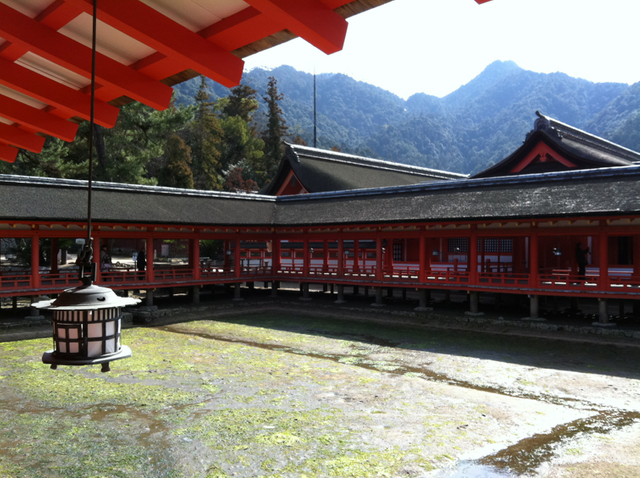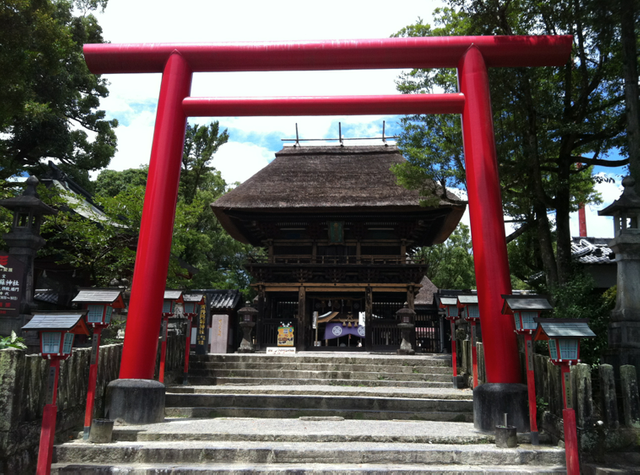My Life as a Japanese Translator

Learning Japanese
People who only speak one language often see people who can speak two or more languages as having some kind of magic power. But just like any magic trick, once you learn how to do it, it doesn't seem so special anymore. Learning a language is just like learning coding language, mathematics, or any other such skill. What initially seems so foreign and difficult slowly becomes second nature.
I was lucky enough to start studying Japanese in high school. It's very unusual to have a native Japanese teacher in a high school, but he was a local college professor who took it upon himself to start inspiring a love for Japanese among younger students. He looked almost exactly like Mr. Miyagi, and was very strict. I didn't know it then, but the way that he would pause teaching in class and give us lectures about life was cultural. Years later, I would watch middle school teachers in Japan give similar speeches to their students. Some of my old Japanese teacher's speeches still affect my views on life.

At that time, I didn't intend to major in Japanese. I wanted to be a nature photographer. Having an independent spirit, I decided to major in photography at a mountain college hours away from my parents. It didn't take me long to realize that although I have a good eye for composition, photography is (at least back then) also largely about things I don't like: f-stops, apertures, the dark developing room that stinks of stop bath. It's an act in patience, too, and I had very little. On top of that, digital cameras were beginning to flood the market, and I realized that if I wasn't one of the best in my out-of-the-way mountain college, there was no way I could compete to become something like a National Geographic photographer. My dreams crumbled under the weight of reality: I wasn't good enough. So I started thinking about what else I could do or might want to do, and realized my language talent and love of reading could be paired: I could become a Japanese translator.
After a hiatus for about a year, I took Japanese for two years in Oregon, then graduated after two more years in Hawaii. Since Japanese is one of the most difficult languages for English speakers to learn, you can get a sense of how well learning it in college works by thinking of Spanish. Spanish is one of the very easiest languages for English-speaking Americans: its writing system is the same as English, its grammar is extremely similar, and we come in contact with it in everyday life. So if you spend the same amount of credit hours studying Spanish as Japanese, you're going to wind up a lot more fluent in Spanish. Even near the top of my Japanese classes, I graduated with a Japanese degree without really being fully fluent.

So, I went to Japan on the JET Program to teach English. I despised it. (I loved Japan -- see here for my writing and pretty photographs about that.) I taught at ten different elementary and middle schools, being constantly shuffled around so that I had to have a dozen different class plans for the same subject and couldn't really get to know most students. But my Japanese did improve. After I got back to the US two years later, I found a job at a major car company helping employees transferred from Japan get set up and more smoothly live their lives in the US. But this time, although there was much I liked about the job, I hated where I lived -- essentially a pit stop in the deep south. After two years, I put in my notice, trained my replacement, and set off to be a translator in a faraway city.
Working as a Translator
This might be hard to believe, but becoming a freelance Japanese translator was incredibly easy. I was terrified to step out into that void, of course; fearful that I couldn't make enough money, or wasn't good enough, and would end up scrambling to get a minimum wage job before my savings were depleted. However, after passing some simple translation tests on a website called Gengo, I was able to freely pick whatever work I wanted to do from jobs uploaded by Japanese customers. At first I was simultaneously working a job I found on craigslist as a door-to-door campaigner for banning neonicotinoids, but eventually I felt confident enough to go completely freelance.
My hours are fully flexible. The work I get is up to me. I just look at what jobs people have uploaded and pick the one I want. My workplace is anywhere I want it to be -- even a cafe or forest. At first I had to learn to be my own boss and force myself to work for hours on end with nobody holding me to it, but I'm getting better and better at that. It's been about a year now, and it just becomes easier and easier the more I translate.

Because Japanese is so different from English, I suspect an entirely new area of my brain has been developed through translation. It's often extremely hazy. For example, when I first started, I would see a sentence that read, "after-lunch's absorbing drowsiness went away," and try to write it something like, "The absorbing drowsiness after lunch went away." But now, it goes into this hazy space in my mind where the meanings are broken down apart from literal words, taking me closer to something like, "The drowsiness that used to overtake me after lunch disappeared." It feels like a machine that can break objects down into their atoms and reconstruct them in a meaningful way. So in a sense, although translating Japanese requires clear focus, it also requires a kind of mental relaxation and flexibility.
Granted, I made ~$42k with annual raises and excellent benefits at my old job, and that's much less than I could make as a professional interpreter. I make less than $20k right now, and I don't even have health insurance or retirement benefits. I still have $20k to pay off in college loan debt. The freedom comes with a hefty price tag. I write this article between translating at a cafe right now, and I don't feel any regrets at all. I don't plan on continuing this forever (you may have noticed a ~2-year trend in my locations and jobs), but I've gone from years of depression to enjoying my life. I even have slowly been venturing into writing, a longtime goal/dream that I've been neglecting my whole adult life. After all my years of forcing myself to study Japanese and do work I dislike, it still seems too easy.
There's a manga by Yazawa Ai called "Paradise Kiss." In one scene, the main character says, "Everything is just falling into place, bang bang. It's kind of scary. I feel like I'll get punished if I get too confident." Another character replies, "The fact that everything is falling into place is just proof that this is the right path for you. From now on, the rest is up to you. I don't think someone giving it their all should be punished." I have to constantly remind myself of this. I also recently heard someone...maybe it was Cornel West, maybe a book character...someone said that young people always think they have to take the hard road. For example, for those of you who found success on Steemit, surely sometimes it seems too good to be true. Too easy. But maybe it's that way for you because this kind of writing is right for you. Why do we feel like life/work should be unpleasant? That's totally backwards.

I don't think following your heart is naive, foolhardy nonsense. I think contentment and fulfillment and lessening regrets are all more important than suffering for most of your life to raise money for an old version of yourself who may not even exist. Of course, I'm trying to repay my loan debt and save up, but no longer at the expense of my happiness. And I had plans B and C if this all failed. But I'm not going to stop -- I'm going to write a novel and try to forge even further into the nebulous world that is my generation's birthright.
On That Note
We were raised to believe we should follow our dreams, we don't have the securities and economic freedoms our parents had, and the Internet, technology, and globalization are changing the very meaning of work. Physicist Michio Kaku has said that in the future, robotics and cheapening technology will force a shift from material to immaterial commodities: writing a novel, painting, composing music, programming games, etc., these are the things that will have great value. The very sorts of things that used to be "starving artist" pipe dream jobs. We've lost the classic American dream, but we've got incredible opportunity to explore our skills as artists, programmers, performers, scientists, writers. We don't need classic 9-5 cubicle jobs as much as we need the market we create for one another -- which is great, because we hate those jobs, and that's not because we're lazy or complain too much. It's because we know what's right for us. (Granted, like me with photography, you have to be able to recognize when you're just plain not great at some particular thing.)
Sometimes, the days blend into each other. Sometimes I sleep past 1 PM. Sometimes I get a sense that I'm losing track of time, of my life. But I'm exploring myself and my talents and skills, slowly coming out of a shell created by everything up to this point. The kind of work I want to do now is learning more on my own: painting, writing, programming, etc.
We are the future that everyone always talks about. We are at the heart of climate change effects, globalization, the Internet, automatized work, and increasing concern about classist oppression. In this bizarre, amorphous world and country of great inequality and poverty (in fact, I believe I currently count as being in poverty) and unrest, thanks to the Internet and changing times, even though we've lost so much that Americans used to expect for themselves, many of us have everything beautiful at our fingertips. If we can only survive and push back a little, our world is lying just around the corner.

Wow, what a great article, thank you for sharing your experience and thoughts on this matter. Your pictures were also appreciated, domo arigato. Namaste :)
Thanks!
Good job figuring out the best way to use your skills to make yourself happy. I had an American friend in Ecuador who was a Chinese translator. Like you, she didn't have any trouble getting the amount of work she wanted; since Asian languages are harder to learn for English speakers, as you noted, fewer people learn them. Translation seems like a nice location-independent gig.
I once helped an Israeli writer choose the English translator for his book by looking at the same page translated by seven different people. It was fascinating to see the differences among the translations.
Yes, people sometimes questioned the wisdom of my major, but it's exactly its scarcity that has been my advantage with it.
There is no such thing as a perfect translation, increasingly as the languages become more different from one another. It's always a balance between literal accuracy and meaning and feeling that each translator calculates in their own unique inner way. I know people who have learned a language just to read certain books. It's the truth that you simply can't read what the original author wrote by reading a translation (maybe much less true with extremely similar languages like Spanish and Italian), but it's a new work in its own right, a collaboration between author and translator.
Literal translations just don't work, especially for fiction. Each language has its own structure and rhythm. I think translation is an underappreciated skill, especially now that machines can sort of do the job. But anyone who has used Google Translate knows its limitations. It's like proofreading. Machine grammar and spell checkers are great for finding extra spaces and some spelling errors, but terrible at a lot of other tasks; they mark errors that aren't errors and miss actual errors.
(Sorry, this is super late, but I just saw this.)
Yes, and although translators are threatened by machine translation, there are certain fields of translation that I think will always be around. Many classics have been translated multiple times, like The Tale of Genji or War & Peace. A machine could even learn to produce translations with multiple different styles, but it can't be Edward Seidensticker or Richard Pevear.
This whole article was very inspiring, and I needed that today. Thank you! I've seen society moving towards automation, but it wasn't clicking in my head what work would be valued when that happened. Thank you for pointing that out. Also, I'm really excited to hear that you're writing a novel!
^.^
We're constantly subject to "damn kids" style sermons from older people and even journalists, but we're a really interesting generation with a LOT of potential. We aren't lazy -- we want to work hard on things we actually care about. I think millennials are idealistic. But idealism leads to amazing things when idealists are the major work and voting force. And we're much more tolerant than previous generations in terms of racism, homophobia, etc. (10%+ more supportive of gay rights than previous generations, for example), and less trusting of the government, and 30%+ in support of third parties. We're very playful and globally-minded. I do worry about a lack of historical, geographical, and current events knowledge, and some level of self-centeredness. But we constantly admonish and check one another, even now, through online debates, which I think is great. Honestly, I think we have our fingers right on the pulse of the current age. Older people are incredibly out of touch with what we're actually dealing with, especially the vast gulf between our economic difficulties and what they dealt with. And they should never have let this get away from them. And we need our own revolution, and we can't lose it this time.
I think millennials are interesting and awesome too. Coming from the point of view of a Gen X'er, I've found them to be much more self-aware and mature than my generation was, and more interested in finding solutions to the problems that face the world.
The older generations have called every younger generation in recent history (and possibly since the beginning of time) "lazy", "self-centered" and "politically naive," which I think was somewhat true about Gen X'ers but much less so about millennials. It's really exciting to watch the ways this generation is changing the world and to participate with them when I can. Also, since Bernie, I think there's more awareness around the raw deal you guys have been given with the economy and the cost-to-value ratio of your education, so there's hope that at the very least, the lectures may stop soon.
I'm pretty sure the revolution Millennials are now creating will be the one that finally "takes."
I really really really hope so!
I tried to translate for a while but I was spending more time looking for work than actually working and literally every project I found was being rushed. On top of that there were all these test-samples to get the higher paying jobs and by the time I finished the tests, the work had already been given to a company in India that was accepting a rate less than 1/4 of the living wage anywhere else.
I'm glad there are happy translators out there! I hope to take it up again some day, part time, but I have decided not to go out and LOOK for it. Hopefully a fun project can land on my lap sooner or later.
anyone want to help me translate some JAV? $27 for every hour translated. [email protected]
Hello! It's ciceron, a translation platform company. We're making a beta version where anyone can make a request to translate their posts on Steemit is going to be released very soon. Moreover, we are looking for translators who supporting steemians can communicate each other with thier contents. The translation payment would be STEEM.
Check this translator registration form. And please inform this to your followers. :) thanks